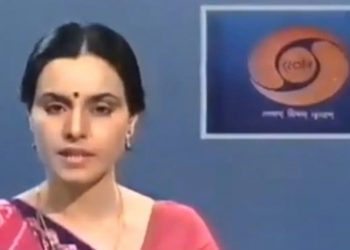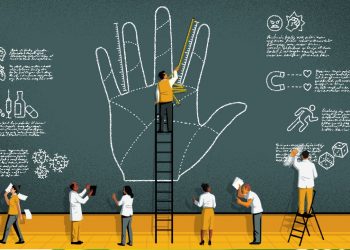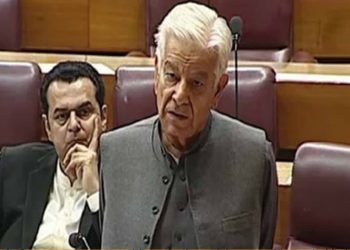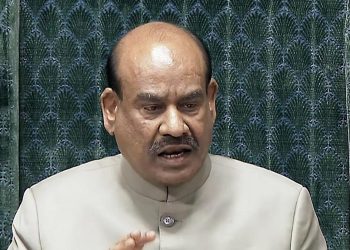Prime Minister Modi knows the knack of moving away from the hot seat and finding a limelight for himself. After promising that he will win the war against coronavirus in 21 days and imposing Lockdown 1.0 and 2.0, he quickly distanced himself from subsequent lockdowns. Near the end of Lockdown 2.0, he quietly passed the buck to the state governments and the chief ministers. Until then, his word was the iron law, now it is left to the Home Secretary to issue ambiguous notifications and to the ICMR to blithely announce, on the day the number of infected persons crossed 2 lakh, that the “peak is very far away”.
The Rs 20-lakh-crore Economic Stimulus Package was Mr Modi’s brainchild. No economist would have put her signature to a khichdi of more liquidity, grand five-year plans and little actual money, and called it a Stimulus Package. With the package expected to fall flat, Mr Modi left it to the Finance Minister to “fill the details”. The FM ran out of steam on the second day.
PM distances himself
Mr Modi no longer speaks on Jammu & Kashmir; that is left to the bureaucrats in Srinagar. He does not speak on the cross-border violations or the loss of lives of jawans; that is left to the generals. He has not spoken so far on the confrontation with China; he has left it to the Defence Minister to read the handouts of the Army HQ and to the Foreign Minister to negotiate with China.
Mr Modi did not utter a word on the migrant workers’ mass reverse migration for a whole month in April. When the issue became uncontrollably explosive, it was the Railway Minister who came forward not to take the blame but to accuse the state governments. Thousands of migrant workers are still stranded at railway stations and bus stations not knowing when they will be able to find public transport.
The Prime Minister, looking for a limelight, grabbed the invitation of the Confederation of Indian Industry (CII) to address their General Body. I understand no PM had addressed their general body before, which came as a big surprise to me.

Not difficult — true or false?
What he said to the general body, of course, came as no surprise. Even allowing that Prime Ministers must keep the spirits high, Mr Modi’s speech was typical of the person. The PM said, “Trust me, getting growth back is not so difficult.” Is that correct? If getting growth back was not so difficult, why did the government not stop the slide in the GDP growth rate in 2017-18? Why did the government stand by helplessly when the growth rate declined for eight successive quarters till Q4 of 2019-20?
Surely, the PM knows that the growth rate of 3.1% in Q4 of 2019-20 was the lowest since Q3 of 2002-03, when BJP was in power. Also, that the growth rate of 4.2% for the year 2019-20 was the lowest in 17 years. Not even the 2008 international financial crisis caused such a hit on India’s growth rate.
The FM is often quoted as ridiculing the UPA’s performance in 2012-13 and 2013-14, deliberately ignoring the numbers put out officially by the CSO: 5.2% in 2011-12, (I returned as FM on August 1, 2012), 5.5% in 2012-13 and 6.4% in 2013-14 (see graph). To remind the FM again, the UPA handed over an economy on the upswing to the NDA.
To be fair, the NDA maintained the pace in 2014-15, 2015-16 and for most part of 2016-17, when, consumed by hubris, the government announced demonetisation on November 8, 2016. That is when the slide began and, despite the PM’s declaration that “getting growth back is not so difficult”, NDA I and NDA II have proved that the task was beyond their capacity.
The missing ‘I’
Industry, trade and commerce know that. Exporters know that. MSMEs know that. Construction sector knows that. Economists, except government’s own, know that. Now, even daily wage earners and migrant workers know that. Hope has faded every day; now, hope is lost completely that the Modi government will be able to revive economic growth. The PM has shown unwillingness to listen to good advice, but I shall not give up. The PM’s latest talisman, the “five I” (intent, inclusion, infrastructure, investment and innovation) misses at least one, if not two, crucial ‘I’ words. The missing element is “income”. Nearly 125 million persons lost their jobs in the last three months. AIMO survey shows 35% of MSMEs and 37% of self-employed businesspersons have lost hope of recovery and will close down their businesses.
It is elementary economics that income alone – money in people’s hands – will revive demand; demand will spur supply and production; production will bring back jobs and incentivise investment; and all of these will revive growth. This economic principle is doubly valid in a time of recession which is where India is headed in 2020-21.
My final submission to the Honourable Prime Minister: Axe your current economic advisers and bring in a new team that will give you sound advice.
Website: pchidambaram.in
Twitter @Pchidambaram_IN









Discussion about this post